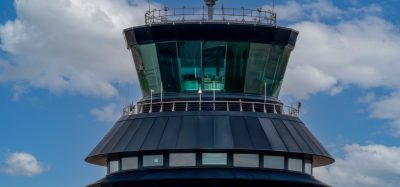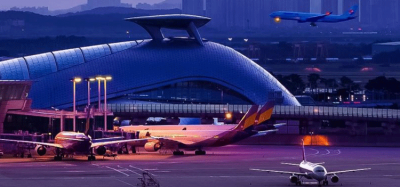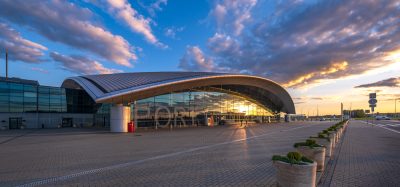Airport slot rules should be suspended due to coronavirus, says IATA
Posted: 2 March 2020 | International Airport Review | No comments yet
As airlines experience a drastic decline in demand due to the coronavirus crisis, IATA calls for airport slot requirements to be temporarily waived.


The International Air Transport Association (IATA) has begun contacting aviation regulators across the globe with the request that the rules governing the use of airport slots be suspended with immediate effect and for the 2020 season, due to the impact of coronavirus (COVID-19).
The rules currently governing slot allocation outline that airlines must operate 80 per cent, at the very least, of their allocated slots under normal circumstances, with failure to comply meaning that the airline loses its right to the slot during the next equivalent season.
The coronavirus outbreak has drastically impacted the aviation industry and air traffic, with airlines experiencing severe declines in demand. Given the situation, the collective view of the airline industry is that the application of the 80 per cent rule during the upcoming season is inappropriate and a requirement that is unattainable.
Join us live: Shaping the Next Generation of Hold Baggage and Air Cargo Screening
Join us live for an insightful webinar on 11th December at 14:00 GMT, in collaboration with Smiths Detection, as we explore the strategic balance of operational efficiency, regulatory compliance, and sustainability in high-volume security environments.
This session offers a focused look into future-proofing your security strategy.
Key learning points
- Cost Reduction: Strategies to minimize bag travel time while simultaneously reducing operational costs.
- Regulatory Roadmap: Insights into the next wave of regulatory changes and their impact on future investment decisions.
- Sustainable Systems: Practical approaches to building sustainability into security systems and lowering the total cost of ownership (TCO).
- Scalable Solutions: Real-world examples of scalable systems supporting current airport growth and preparing for tomorrow.
Register now for expert insights, case studies, and actionable strategies on operational efficiency!
In exceptional circumstances, regulators are able to relax this requirements. As a result, IATA is calling for more flexibility for airlines, allow them to adjust their schedules according to extraordinary demand developments.
Evidence supporting the argument includes:
- A carrier experiencing a 26 per cent reduction across its entire operation in comparison to 2019
- A hub carrier reporting bookings to Italy being down by 108 per cent, as bookings collapse to zero and refunds grow
- Many carriers reporting 50 per cent no-shows across several markets
- Future bookings are softening and carriers are reacting with measures such as crew being given unpaid leave, freezing of pay increases, and plans for aircraft to be grounded.
For operations to areas such as China and Hong Kong, regulators are already waiving the slot rules on a rolling basis during the coronavirus crisis. However, recent outbreaks are no longer contained within Asian markets.
IATA’s Director General and CEO, Alexandre de Juniac, said: “IATA research has shown that traffic has collapsed on key Asian routes and that this is rippling throughout the air transport network globally, even between countries without major outbreaks of COVID-19. There are precedents for previous suspension of the slot use rules and we believe the circumstances again calls for a suspension to be granted. We are calling for regulators worldwide to help the industry plan for today’s emergency, and the future recovery of the network, by suspending the slot use rules on a temporary basis.”
With constant uncertainty regarding the future of the coronavirus and the subsequent waivers, especially whether or not they will continue into the summer season, airlines are unable to plan ahead sufficiently to ensure efficient scheduling of crew or deployment of aircraft. By suspending the requirement until October 2020, airlines will be able to respond to market conditions with appropriate capacity levels, avoiding any need to run empty services in order to maintain slots. Aircraft can be reallocated to other routes or parked, and crew can have certainty on their schedules.
De Juniac continued: “The world is facing a huge challenge to prevent the spread of COVID-19 while enabling the global economy to continue functioning. Airlines are on the front line of that challenge and it’s essential that the regulatory community work with us to ensure airlines are able to operate in the most sustainable manner, both economically and environmentally, to alleviate the worst impacts of the crisis.”
Industry responses
Olivier Jankovec – Director General of ACI EUROPE – responded to IATA’s recommendation, stating that, though a partial relaxation of European slot regulation rules would be beneficial, a blanket relaxation is unwise: “The spread of coronavirus is significantly impacting Europe’s airports, with the impact especially dramatic for airports in Italy – with traffic declining by up to 50 per cent over the past few days. Unlike airlines, whose aircraft are movable assets, airports can neither close nor relocate their terminals and runways to weather the storm. We support a partial relaxation of EU rules governing the use of airport slots use, but do not consider, at the moment, that a blanket relaxation for all air routes is justified. The epidemic is not affecting all markets to the same extent. The European Commission has already allowed a targeted relaxation, focused on those air routes to Asia that are the most impacted. The targeted approach limits cancellations unrelated to the coronavirus outbreak and helps maintain air connectivity. It should still be the way forward, possibly along with other alternatives to a full relaxation – such as lowering the required airport slot usage threshold of 80 per cent. Decisions taken by the Commission on this must remain data-driven and proportionate to the actual impact they seek to address.”
The International Airport Summit is open for registration!
Date: 19 – 20 November 2025
Location: JW Marriott Hotel Berlin
At our flagship event of the year, we will dive into the future of airport operations, with expert-led sessions on passenger experience, innovative smart technologies, baggage handling, airside operations, data, security, and sustainability.
This is where global airport leaders come together to share insights, challenges, and real-world solutions.
Limited complimentary passes are available for eligible professionals – first come, first served!
Related topics
Aeronautical revenue, Airport crisis management, COVID-19, Passenger volumes, Regulation and Legislation


















